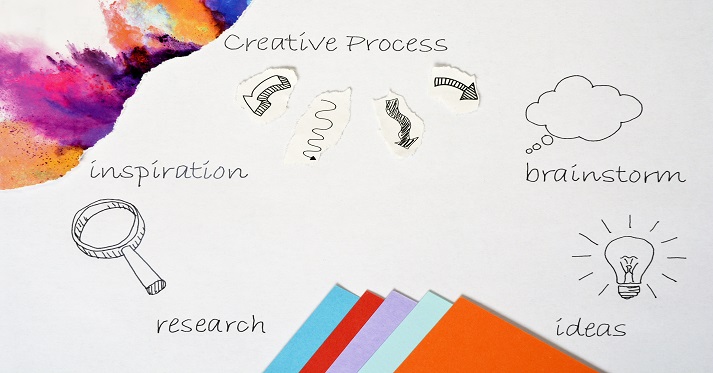
01 Aug NCATS-funded Innovation Labs to Drive Early Career Grants – Application Site Open
NCATS is seeking early career scholars to join an NCATS innovation lab known as INNOVATION LAB BUFFALO:
Radical Solutions to the Opioid Misuse Epidemic. Deaths from opioids have quadrupled in the past 15 years in the United States. Opioid mortality parallels increase in the quantity of legal prescription opioids dispensed. Abundance of prescription opioids paves the path to nonmedical use. Curbing opioid misuse is a major public health challenge, one that will require solutions involving diverse disciplines and perspectives. The NIH will be committing significant new funds to support grants to study the opioid epidemic in an effort to attract researchers new to this field to apply novel approaches from many disciplines to study this critical problem.
The goal of this project is to facilitate the development of novel transdisciplinary collaborative grant proposals among early-career scholars. Enhancing collaboration is central to the CTSA program but faces many barriers. Early career investigators may face even greater challenges in pursuing and obtaining collaborative funding – without a substantive “nudge”. To provide that nudge, this project will implement Innovation Labs to Drive Early Career Grants designed to foster new transdisciplinary, multi-CTSA teams that will pursue radical science on opioid misuse.
Innovation Labs to Drive Early Career Grants
At the core of any Innovation Lab is the combination of a difficult problem, a diverse group of participants, and a facilitated 5-day journey through the creative problem-solving process. Since 2003, Innovation Labs (a.k.a. “sandpits” and “ideas labs”) have been run by NSF and NIH on a range of problems (e.g., synthetic biology, security of cyber physical systems, mobile health, cancer risk behavior).
The Innovation Lab methodology is designed to counteract the myriad forces that push for monodisciplinary incremental science. Innovation Labs move quickly but deliberately to only scope the problem and gather data, and then to generate novel combinatorial solutions, “stretch ideas”, and create and refine solutions/proposals with real-time peer-review. The idea is to develop sketches of impactful and novel proposals within 5 days. Throughout the process, there is a deliberate focus on both expertise identification and the creation of trust and shared understanding among participants.
Our Innovation Labs to Drive Early Career Grants will bring together ~25 scholars from across the CTSA network, facilitators, and content experts who guide participants through the early stages of proposal development. Scholars need not bring “canned” research ideas to the Lab. Rather, teams and ideas are developed through real-time peer review. Ideas rapidly iterate, in public, with the benefit of constant commentary. A small team of scientific experts or “mentors” play dual roles of coaches and reviewers, reinforcing novel ideas while balancing them with the realities of funding and scientific politics. (Mentors are not eligible to be part of the teams/proposals developed in the Lab).
This Innovation Lab is the product of a partnership between the University at Buffalo Clinical and Translational Science Institute (UB CTSI) and Vanderbilt Institute for Clinical and Translational Research (VICTR), with funding from the National Center for the Advancement of Translational Science (NCATS).
The goals are to advance collaborative science on opioid misuse, to evaluate the impact of week-long Innovation Labs, and to better understand attitudes and behavior related to collaboration among early career scholars. To assess collaboration perspectives independently of the application review, each applicant will be sent a personalized link to an online baseline assessment after the application submission deadline. Applicants should complete the baseline assessment within 2 weeks. Details of the research aspects of the project are provided in a consent form at the beginning of the online application form. Read the full application guidelines here.
Timeline
- August 20 Application submission deadline
- August 21 Receive baseline assessment
- September 3 Baseline assessment submission deadline
- By September 10 Applicants notified of outcome
- November 6-10 Innovation Lab Buffalo, Buffalo, NY
Applicant Eligibility
Applicants should be early stage investigators (NIH-defined as “within 10 years of completing his/her terminal research degree or is within 10 years of completing medical residency (or the equivalent)”) who are emerging as independent scholars. We anticipate that many participants will currently hold their first NIH R01 or equivalent. However, to ensure content coverage and participant diversity, we will recruit a broad range of early career scholars from diverse disciplines. Women and under-represented minorities are especially encouraged to apply. We are committed to providing reasonable accommodations for qualified individuals with a disability.
Applicants should be faculty at a CTSA hub institution or regional partner.
The Innovation Lab is an intensive, residential workshop. By submitting an application, you are committing to complete all five days of the workshop. Travel and lodging will be provided in accordance with NIH policy.
Submit an Application
To apply, complete the application form, where you will upload your:
- NIH (or NSF) Biographical Sketch
- NIH (or NSF) Other Support / Current Pending Support
- Answers to each of the following topics/questions:
- Provide a brief summary of your professional background (max 250 words). Please note that if you are selected for the Innovation Lab, your answer will be made available to the other attendees to facilitate networking at the workshop.
- How do you see your expertise and interests contributing to realizing the goal of this Innovation Lab? (max 250 words)
- What do you hope to gain from participating in this Innovation Lab, personally and professionally? (max 150 words)
- What is your personal experience with working in teams? What strengths do you bring to a team effort? (max 150 words)
- How would you describe your ability to explain your research to non-experts? (max 150 words)
- The Innovation Lab environment is especially suited to individuals who are willing to step outside their particular area of interest or expertise, who are positively driven, who enjoy creative activity, who can think innovatively and who can settle in easily in the company of strangers. Please describe an experience you have had in a comparable environment. (max 150 words)












